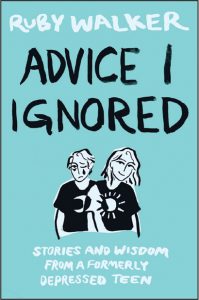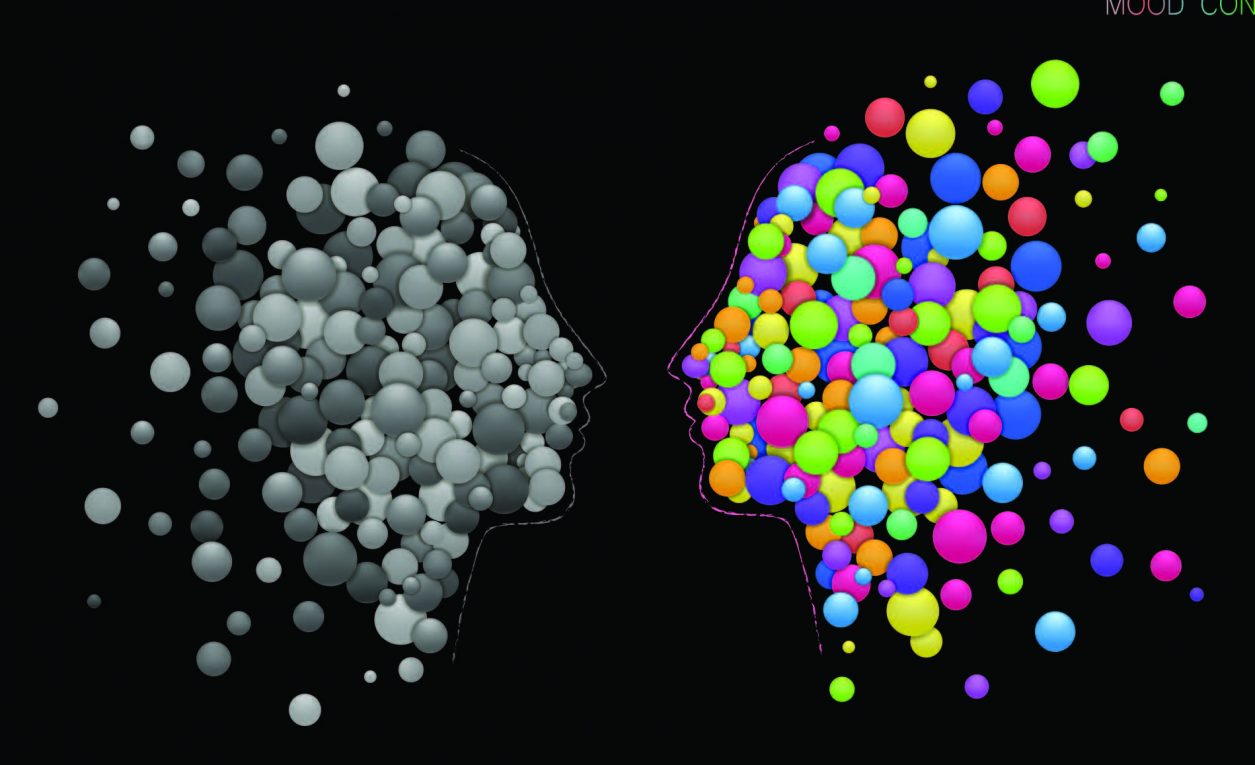If I had to describe how depression made me feel in four words, I’d say unwelcome in my mind. That was the primary sensation. That’s why it was different from just being sad. Day in, day out, I was bullying myself. I was under constant attack. Of course I was tired! Of course I broke down! Of course I was numb, hopeless, and angry!
How would you feel about a friend who makes jokes at your expense, puts you down when you fail, ignores your successes, and never thinks you’re good enough?
That is exactly how I used to treat myself. It was always “Sorry I’m this, sorry I’m that.” There are a hundred thousand ways to bully yourself with words.
All the little things added up. Criticism turned to hatred. Everything made me tired. Everything made me hate myself. The more I hated myself, the more tired I felt, and the more tired I felt, the further I fell. My grades slipped. When I spoke, I snapped. When I wasn’t angry, I’d cry. I didn’t notice how much my selfdeprecation was affecting me. Slowly but surely, it became my status quo.
And how could I have noticed? That’s how my friends talked about themselves. We made jokes at our own expense at lunch, on twitter, in the morning, before bed. You’ve seen the jokes, the posts, the fatalistic streak my generation has. It’s a culture of fear and loathing. I hardly knew there was another way to exist.
I think everyone would like to have better self-esteem. I did too, but I wanted it in the sort of far-off fantasy way that someone living paycheck-to-paycheck wants a cherry red Porsche. Wouldn’t it be nice if I had better self-esteem?
But I found the secret. Words. Whether it’s a joke or not— whether they “really mean it” or not— when someone says something mean to you, doesn’t it hurt?
A relationship doesn’t go sour for no reason: it’s the daily practice of talking to each other that forms how we feel. Compliments grow scarce; words of support are out the door. Every situation becomes an excuse to snipe at each other! Every problem is your fault.
No, your fault. No, it’s your fault.
The same goes for what we say about ourselves. Every little comment matters. I changed the way I felt about myself by changing the way I talked about myself. It wasn’t easy, but it was a measurable, achievable goal. That was more than I’d ever had before.
I did three things:
- I stopped saying mean things about myself, full stop. Even jokes! And I loved a good self-deprecating joke.
- Even when I couldn’t believe them yet, I started saying positive affirmations instead.
- Everything I said to or about myself came under the same scrutiny: The Friend Rule. If I wouldn’t say it to my best friend, I don’t say it to myself.
Somehow it worked. The words I spoke turned into the words I thought, and the words I thought turned into me. I went from just feigning self-respect to truly wanting to look out for myself. Like any relationship, it took time and work; it didn’t happen overnight. And still, it’s the foundation of my recovery. Every time I do something good for myself, I do it because I give a damn whether I am okay or not.
Actually giving a damn starts with the words you say to yourself, and eventually, this self-respect extends to actions. You start to improve your life. Kick addictions. Take care of yourself.
I know that for some blessed people, selfrespect is automatic. I had to learn. My friends and family taught me how to love myself: not by telling me, “Ruby, you need to love yourself,” but by showing me what acceptance feels like. I always knew how to treat others with basic decency, and I knew what standard to expect from strangers and pals. I just had to apply that same standard to my inner life.
Being a friend to yourself means cutting yourself the same slack you already give to others. It means recognizing setbacks, celebrating progress, and forgiving mistakes. It means making a conscious effort to speak kindly and show respect. And most of all, it means pushing through, even when all you want is to sink down. By changing the words I used, I became my own best friend. I keep my successes folded carefully in my heart. I wipe my own eyes when the world is too much to handle. And you know what? I wouldn’t go back for anything.

 Ruby Walker is a 19-year-old college student, activist, artist and author of Advice I Ignored: Stories and Wisdom from a Formerly Depressed Teen, the only book on teenage mental health actually written by a teenager.
Ruby Walker is a 19-year-old college student, activist, artist and author of Advice I Ignored: Stories and Wisdom from a Formerly Depressed Teen, the only book on teenage mental health actually written by a teenager.




















